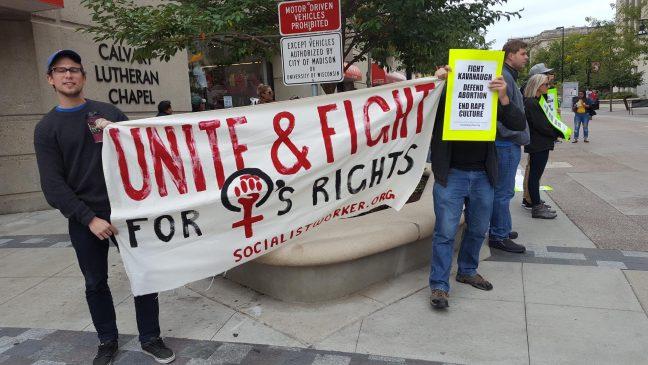Socialism, as a concept in American political discourse, is often discussed but little explained. Particularly in the last year, following the elections or primary victories of self-identifying socialists in New York, Virginia and elsewhere, the term has been bandied about everywhere from “The View” to the president’s in-house Council of Economic Advisors. Teen Vogue even published a well written primer on anarchism, a particularly spicy genre of socialism.
So far, no crystal-clear definition has emerged into the zeitgeist. That’s the result of two factors. First, there is a tendency in what could be called “mainstream” political discourse to say socialism when they mean a sort of New Deal-style turbo-liberalism. With this obfuscation, exemplified in that Council of Economic Advisors report, a vast ideological and political tradition that stretches back centuries is reduced to meaning just big social welfare programs. The confusion is deepened by the common assumption that European countries who have those types of big social programs are socialist. Second, because no serious political movement has emerged to claim the ideological mantle in decades, there is no one on the left to correct the first notion. Just based on the number of different socialist groups in Madison (six, last I heard!), there is no agreed-upon interpretation of what it all means.
Widespread change takes place only when collective activism reigns
And yet, despite this, socialism is having a bit of a moment again. Socialist groups in Madison have seen their numbers explode following Bernie Sanders’ failed presidential run and the fallout of the 2016 presidential election. Many of these organizations see political education as a crucial part of their mission — in some ways, it is the building block around which all their political growth must be built. After all, if no one knows what they stand for, they could put on a million meetings and rallies and never go anywhere. Just in the last few months, the Madison chapter of Democratic Socialists of America organized two “Introduction to Democratic Socialism” lectures and is looking to put on a night school for political theory, while the local chapter of the International Socialist Organization has had regular meetings based on demystifying the concept. So with that in mind, let’s talk about what socialism actually is.
Modern-day socialism is rooted in a critique of capitalism. As stated earlier, the specifics of this critique vary depending on whose books one reads, but the basic structure is the same. There is a class of people in our society who own factories or businesses, and there is a class of people who do not. Because there is no alternative economic system, the people who have no factory or business can only make a living by working for the people who do. But the owners want to make money, so they underpay those workers. Workers are given a wage that equals less than the value that they produce, and the owner pockets the rest — profit. That might seem innocuous, but remember that it is the worker who has created the value. The factory and its owner can do nothing on their own — they can only help workers create useful goods. Always, it is the workers who create the value.
That’s the foundation. Socialists argue that this exploitation is what our society is built upon. Poverty, war and suffering are not bugs — they are structural. They argue though they have taken on lives of their own, racism, sexism and all other forms of contemporary oppression can in some way be traced to our basic economic reality.
In wake of midterm elections, Wisconsin voters are not subject to ideological shift
To meaningfully confront these problems, socialists argue we have to tear at the roots. That means replacing capitalism with a new system — socialism. Again, one can find endless arguments about what this actually would look like, but the basic premise is this — working-class self-rule. Workers — and that doesn’t just mean factory workers, that means everybody — own and administer the factories and businesses and produce goods to fulfill human need. That doesn’t mean trying to create an impenetrable thicket of bureaucracy. The essence, the goal and the radical ambition of socialism is to create a society where everyone who works has an active role in governing society. A society that serves the many who make, and not the few who take.
One of the difficulties, among many, that socialist groups have in Madison is at times, all of this can be overwhelming. The misinformation, both deliberate and accidental, surrounding socialism is as thick as fog. But at its heart, the idea is simple. It promises a better world for the downtrodden, and for humanity. It’s why despite all the propagandizing — all the bullets its opponents have put in the bodies of those who would dare to dream of a brighter future — it lives on.
To talk about socialism, one needs to understand it. Those who hate everything that was just described should be honest about what they hate. Because look around, it’s not going anywhere.
Sam Palmer ([email protected]) is a senior majoring in biology.














